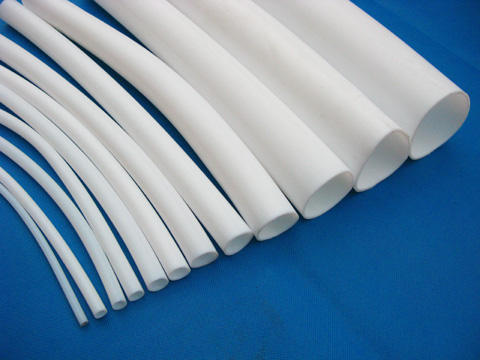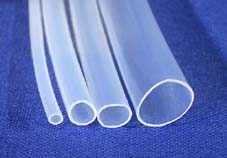The majority of industries like the steel Industry and
chemical processing industry have been consistently utilizing pipes made of
fluoropolymers and is made of materials like PTFE and hoses for many years for
carrying highly reactive or corrosive chemicals. The popularity of these pipes
is on the rise because of its properties and it is fast replacing the pipes
made of carbon and other metals.
The Properties of
PTFE Tubes
The PTFE tube
properties are different from another kind of pipes and it is its unique
properties which set it apart from carbon and the metal pipes.
Thermal properties- PTFE tubing can
withstand temperatures up to 680 °F for a short duration under cryogenic
conditions; PTFE tubes does not change even at high temperatures like 500
degrees Fahrenheit and can withstand cold temperatures down to -320 °F.
Electrical properties- PTFE tubing has great electrical
properties as it is a great insulator and a great surface resistivity.
UV resistance and wearability- PTFE tubing has excellent UV
resistance and wearability.
Wear and Friction Qualities- PTFE tubing has a relatively
slippery and smooth surface, so it also has a great wear and frictional
qualities.
Application of PTFE
Tubes
The success of PTFE tubing is chiefly because of its unique
properties and it is used in a wide number of industries. The PTFE uses and
Properties are as follows:
In automotive applications, the property of PTFE to
withstand temperatures in excess of 250oC makes it an ideal tube for
high-temperature fluid transfer and hence is a ready reckoner for PTFE tube
suppliers.
In medical applications, PTFE tubing is much in demand due
to its lubricity and chemical inertness. The use of catheters
employing PTFE Tubing as it can be inserted into the human body without
fear of thinking it will affect the health of the patient.
In chemical applications, it can be used in laboratories and
can replace the use of glass tubes mainly because it is inert and very durable
and hence a favorite with PTFE tube manufacturers.
In electrical applications, the very effective dielectric
properties of PTFE tubing make it very suitable for insulating high voltage
cables.
The versatility of PTFE tubes has upped its popularity in
the recent years and there seems to be little chance of its popularity waning out anytime soon.
Polytetrafluoroethylene (PTFE) is a high molecular polymer
that is used in abundance in cable and tubing industry chiefly because of its
electrical properties, chemical inertness, and high-temperature resistance. The
use of this material is on the rise especially in the manufacturing and
industrial sectors mainly because of the specific properties of the particular
polymer. There is a reason why the PTFE abrasion resistant tubes are being
appreciated across the world; certain unique properties are setting it apart
from another similar kind of tubes.
These qualities make it an ideal choice for a wide number of
industries. More and more industries are waking up to the huge number of
benefits of the PTFE tubing, and it
goes without saying that PTFE tubes are here to stay.







